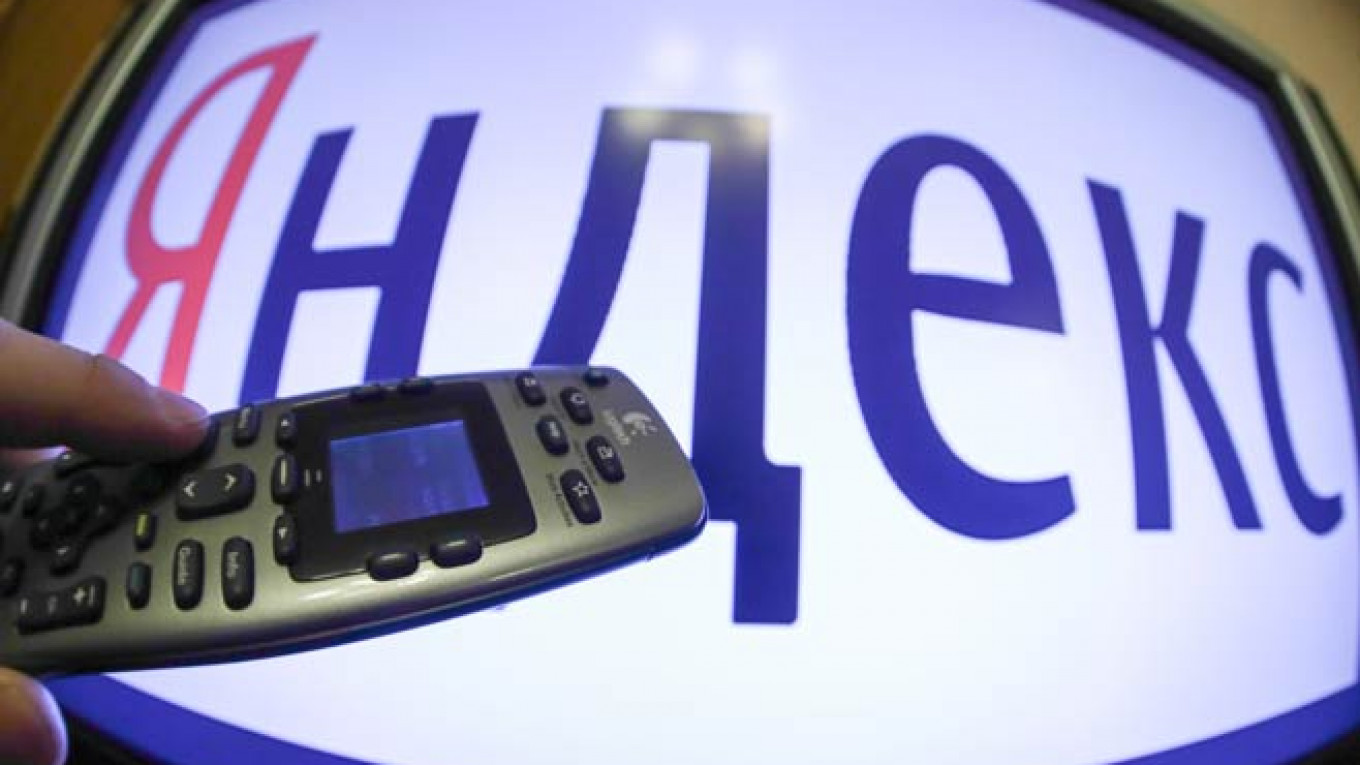State-owned Channel One failed to meet the promise of its name in 2013, as Internet titan Yandex leapt to first place by revenue volume in the Russian media.
The state's flagship channel also suffered a net loss for the first time in more than a decade. It ended the year with losses of 1 billion rubles ($28 million) despite receiving state subsidies of more than 3.7 billion rubles, Vedomosti reported, citing the company's 2013 earnings report.
Channel One struggled in 2013 under the startup cost of its new high-definition channel, expanded investment in content, and expenses brought on by the Sochi Olympics. But on a more fundamental level, the reversal vividly reflects the exponential growth of Russian Internet companies and their impact on the advertising market.
Revenues from online advertising rose 27 percent in 2013 to 72 billion rubles ($2 billion), according to the Association of Communication Agencies of Russia, or AKAR. The saturated television advertising market, by contrast, grew 9 percent to total revenues of 156 billion rubles.
Channel One and Russian Google-equivalent Yandex bore the extremes of this shift: Yandex saw revenues rise 37 percent, while Channel One's advertising revenues increased only 1.6 percent.
Yandex is well-positioned to benefit from the growth in online advertising. The company controls half of all advertising on the Russian Internet, where it earned nearly 90 percent of its 2014 revenues on context advertising, a format that displays targeted advertisements based on content viewed by the user.
Channel One still earns more than any other Russian television channel, with 29.6 billion rubles in revenue in 2013. But precisely due to its size, it cannot grow at the same pace as smaller competitors, said a spokesman for Video International, the company that sells advertising space on Channel One.
Channel One and Yandex are not in direct competition for clients, as context advertising is most popular among small and mid-sized business that could never afford expensive television ads, AKAR chairman Sergei Piskaryov told Vedomosti.
"We do not consider Yandex a competitor, the intersection in our commercial advertising is about 10 percent," a Channel One representative said.
While they do not clash on the national level, television and context advertising are battling it out in the regions, Piskaryov added, which may account for the particularly slow growth of television advertising on the local level.
The two media giants are, however, competing for another, even more vital asset — viewership.
Channel One's yearly report noted that the Internet has become television's main competitor as a source of information and entertainment, particularly for the younger generation.
For now, the two are neck and neck: 20 million people between the ages of 12 and 64 surf the web with Yandex each day, while 21.8 million turn on Channel One, according to TNS Russia.
Contact the author at [email protected]
A Message from The Moscow Times:
Dear readers,
We are facing unprecedented challenges. Russia's Prosecutor General's Office has designated The Moscow Times as an "undesirable" organization, criminalizing our work and putting our staff at risk of prosecution. This follows our earlier unjust labeling as a "foreign agent."
These actions are direct attempts to silence independent journalism in Russia. The authorities claim our work "discredits the decisions of the Russian leadership." We see things differently: we strive to provide accurate, unbiased reporting on Russia.
We, the journalists of The Moscow Times, refuse to be silenced. But to continue our work, we need your help.
Your support, no matter how small, makes a world of difference. If you can, please support us monthly starting from just $2. It's quick to set up, and every contribution makes a significant impact.
By supporting The Moscow Times, you're defending open, independent journalism in the face of repression. Thank you for standing with us.
Remind me later.






